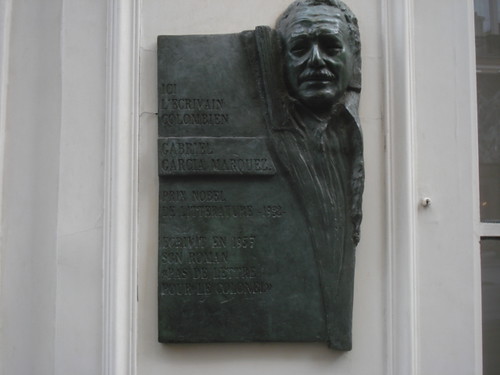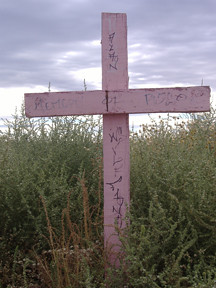Earlier this week we looked at a group of disabled protesters in Bolivia who ended their demonstration after the government agreed to some of their key demands. Among those who stopped demonstrating where at least five people who went on a hunger strike for over a week.
Another hunger strike in Bolivia also ended several days ago. Jesús Vélez Loor of Ecuador stopped his fifty-one day hunger strike that was held outside of the Panamanian embassy in La Paz after the government of that Central American state agreed to his request to be indemnified.
Vélez Loor's actions will hopefully bring to an end to a ten-year saga he endured for nearly a decade. As described by the website for Ecuadorian newspaper La Hora:
(Vélez Loor) was detained by Panama immigration officials...and was accused of being linked to Colombia's FARC (guerillas). He was later deemed to be dangerous and a public security risk.Over two months after undergoing extreme starvation for his cause the Panamanian government relented and agreed to pay $27,500 to Vélez Loor as well as $24,000 to the local legal group that assisted him.
He was freed ten months later after suffering from an ulcer, losing a testicle and injuries in his feet, arms and head. According to him this came about after he was tortured in a Panamanian prison.
In August 2010, the Inter-American Court of Human Rights heard his testimony and four months later ruled in his favor condemning Panama for cruel and inhumane treatment.
Panama had one year to compensate Vélez but failed to do so. Thus, the Ecuadorian started his hunger strike last January at the doors of the embassy in La Paz.
The following Spanish-language video comes from a June 2011 interview with Vélez Loor. He explained his ordeal in the overcrowded Panamanian prisons as well as the heavy-handed actions taken by prison guards to try to maintain control over the facilities:
Hunger strikes are a familiar form of protest in Bolivia with perhaps the most famous example being when President Evo Morales fasted for five days in 2009.
Video Source - YouTube via wm642
Online Sources - La Hora, The Latin Americanist, Al Jazeera English




